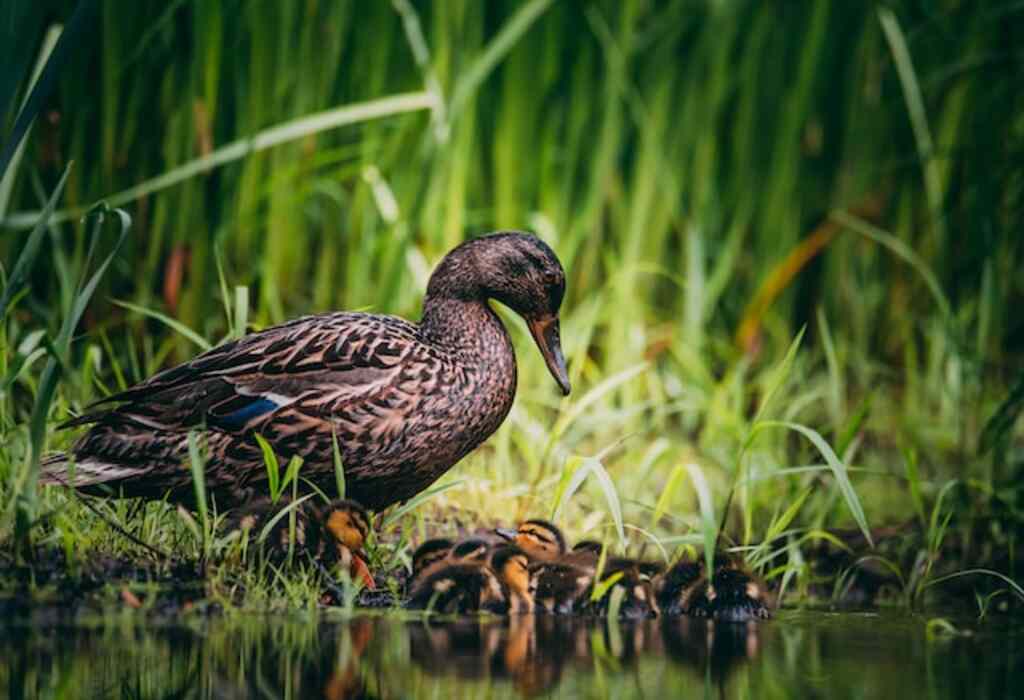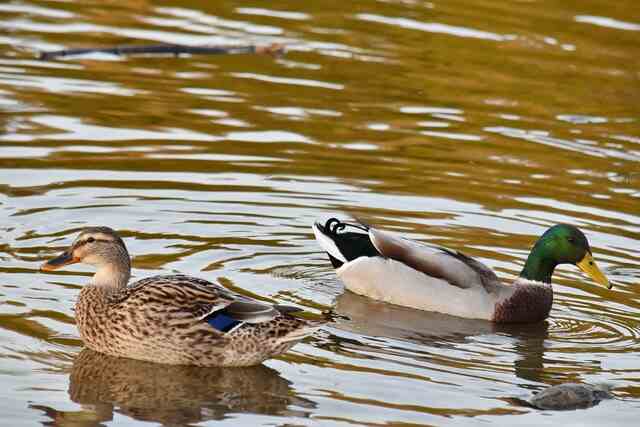Do ducks eat worms? The short answer is yes, however, that’s not the whole story. If you’ve ever found yourself wondering what ducks eat or why they have a reputation for being “quackers,” you’re in the right place.
In this article, we’ll explore the fascinating world of duck diets and answer all your burning questions about what these feathered friends like to chow down on.
So, whether you’re a bird enthusiast, a curious onlooker, or just a worm aficionado, keep reading to discover the truth about ducks and their love of worms.
Table of Contents
- 1 Do Ducks Eat Worms?
- 2 The Menu: What types of worms do ducks eat?
- 3 How do ducks find and catch worms?
- 4 The role beaks play in catching worms
- 5 The importance of worms in a duck’s diet
- 6 The risks associated with feeding wild ducks worms
- 7 Are there any risks associated with feeding ducks worms?
- 8 Suggesting caution when feeding wild ducks
- 9 Conclusion
- 10 FAQs: Do Ducks Eat Worms?
- 10.1 Do Ducks Eat Worms?
- 10.2 How many worms do ducks eat?
- 10.3 Do ducks eat earthworms?
- 10.4 Are worms good for ducks?
- 10.5 Can ducks eat mealworms?
- 10.6 What other insects do ducks eat?
- 10.7 How do ducks find worms?
- 10.8 Do ducks eat garden worms?
- 10.9 Are worms the only food source for ducks?
- 10.10 Can ducks eat dead worms?
- 11 Author
The Omnivorous Duck
Ducks are known to be omnivorous creatures, meaning that they eat both plants and animals. This diet is reflected in the special structure of their beaks, which are designed for both biting and grinding food.
They have a unique digestive system that allows them to extract nutrients from a variety of food sources. Additionally, ducks have a high metabolism rate which enables them to convert food into energy quickly.
Despite being waterfowl, ducks will feed on land or water. Their diet consists of various types of aquatic plants, grasses, fruits and berries; however, they also consume small animals such as insects and worms.
A Typical Meal for a Duck
The majority of a duck’s diet will consist of aquatic vegetation such as duckweed and algae. These foods are rich in vitamins A and K which help with bone development as well as blood clotting respectively.
Additionally, certain types of aquatic plants such as cattails can act as a laxative for the bird while others like wild celery contain calcium, which is beneficial for egg-laying females.
Insects make up an important part of the duck’s diet too; these include beetles, flies and even mosquito larvae which they scoop up from the surface of still waters.
Not only do these insects provide protein, but they also contain essential vitamins including thiamine and riboflavin.
Small fish or amphibians may supplement the duck’s diet on occasion, but this depends largely on where the bird is located geographically.
But Do Ducks Eat Worms?
Yes! Ducks do eat worms-earthworms in particular-along with other small creatures like snails. These make up a good source of protein in their diets that can be hard to come by during certain times of year when plant life is scarce.
In fact, worms can be considered a “superfood” for ducks as they are an excellent source of protein, vitamins and minerals.
The calcium which earthworms provide helps with bone health, while the amino acids found in them aid in the development of strong muscles.
So next time you’re feeding ducks at the park and happen to have some worms on hand, don’t hesitate to offer them as a treat- it’s good for them!
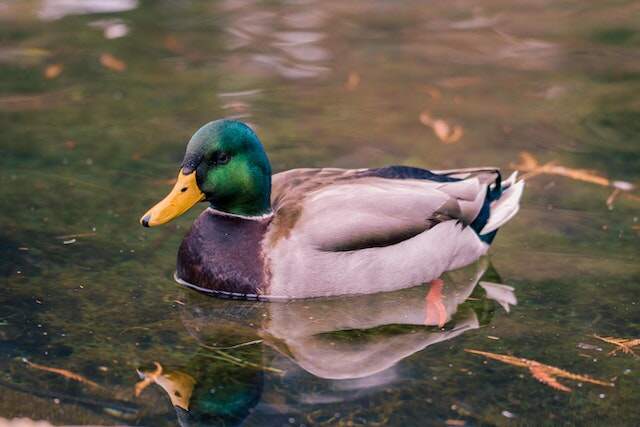
Do Ducks Eat Worms?
If you’ve spent some time observing ducks, you may have noticed that they are fascinated by all sorts of creatures that inhabit their environment. From flies to snails, these birds consume a wide variety of food items – including worms! Yes, ducks do eat worms.
In fact, the consumption of worms is an essential part of their diet. Worms provide a rich source of protein and other nutrients that help support the bird’s overall health and vitality.
Additionally, consuming worms can help prevent nutrient deficiencies and malnutrition. But why are worms such an important part of a duck’s diet?
For starters, they offer a high level of protein – an essential nutrient for any bird that needs to build and repair its tissues regularly.
Without enough protein in their diet, ducks may be unable to grow or maintain feathers properly, which can lead to disease or exposure to harsh weather conditions.
Worms also contain vitamins and minerals that are crucial for a duck’s health. For instance, earthworms are rich in calcium which is necessary for strong bones and healthy eggshells in female ducks.
On the other hand, mealworms are high in fat which provides energy for flying and swimming – two activities essential for these waterbirds’ survival. In short: if you’re wondering whether ducks eat worms or not – the answer is yes!
But don’t stop at just offering up a few tasty morsels here and there; ensure your feathered friends get enough nutrition from other sources too.
A varied diet will keep both you and your feathered friends happy!
The Menu: What types of worms do ducks eat?
When it comes to eating, ducks are pretty versatile and will eat just about anything that they can fit into their beaks.
This includes a wide variety of worms that can be found in fields, gardens, or water bodies. The types of worms that ducks consume vary depending on their environment and the time of year.
Some of the most common worms that ducks feed on include earthworms, mealworms, and waxworms. Earthworms are one of the most common types of worms that ducks eat.
They can be found in almost any soil type and are especially prevalent in areas with high moisture content like wetlands or near ponds.
Earthworms are rich in protein, which makes them an excellent source of nutrition for ducks.
Additionally, earthworms contain high levels of calcium, which is essential for healthy egg production. Mealworms are another type of worm that is commonly consumed by ducks.
These tiny creatures live in decomposing plant matter like compost piles or leaf litter, and can often be found crawling out onto sidewalks or other surfaces after rainfall.
Mealworms have a high-fat content, which makes them an ideal food for migratory birds, who need a lot of energy to fuel their long flights.
Waxworms are yet another type of worm that is consumed by some species of ducks, although they tend to prefer them less than other varieties mentioned earlier, as they don’t find them as often as meal- or earth-worms).
Waxworm larvae grow inside the honeycomb structure created by beeswax within bee hives while feeding on pollen reserves stored therein.
These worms have a high-fat content similar to meal-worm larvae, making them a good source for migratory birds’ energy needs.
Different types of worms provide different nutritional benefits, so it’s essential for ducks to have access to a variety throughout their diet, so they get all the necessary nutrients.
For example, earthworms are high in protein and calcium, while mealworms are high in fat and energy. Providing ducks with a balanced diet that includes a variety of worms can help ensure their overall health and wellbeing.
How do ducks find and catch worms?
Ducks are known to be excellent hunters, and it’s no surprise that they have developed unique techniques for finding and catching their prey. One of the ways that ducks locate worms is through their keen sense of sight.
They can easily spot worms crawling on the ground or floating in water with their sharp eyesight. Furthermore, ducks have an impressive range of vision thanks to their horizontal pupil shape.
This allows them to see predators coming from all angles. In addition to using their vision, ducks also rely on their remarkable hearing abilities to locate prey.
Ducks have highly sensitive ears that allow them to detect even the slightest sounds made by moving earthworms or insects underground. This acute sense of hearing helps ducks know exactly where to look for food.
Once a duck spots its prey, it will use its beak to dig for or pluck out worms from the ground or water. Their bills are specially designed for this purpose, with serrated edges that help them grip onto slippery prey like slimy earthworms.
When searching for worms in shallow water, some duck species like mallards may use a technique called ‘dabbling’. This involves submerging their head underwater while keeping most of their body above the surface.
They then use their bills to stir up mud and debris at the bottom of ponds or rivers, flushing out any potential prey hiding underneath.
Overall, it’s clear that ducks have evolved a remarkable set of skills and abilities when it comes to finding and catching worms as part of their natural diet.
The role beaks play in catching worms
The beak is one of the most important tools for a duck when hunting for food – especially when it comes down to catching slippery creatures like earthworms.
The design of a duck’s bill is perfectly engineered for this purpose, thanks to its serrated edges which grip onto wriggly prey. Ducks have different beak shapes depending on the type of prey they eat.
For instance, diving ducks that feed on fish have longer, more pointed bills that are perfect for spearing fish underwater.
In contrast, dabbling ducks like mallards have flatter bills with a wider surface area, which allows them to sift through mud and debris at the bottom of water bodies.
When it comes to hunting for worms specifically, ducks use their bills to pluck them out from the ground or water.
They will often probe the soil or mud with their beaks in search of earthworms that they can grab onto with their serrated edges.
Ducks may also use their feet to stir up mud and expose worms hiding underneath.
Overall, the unique design of a duck’s beak ensures that they are perfectly equipped to catch and consume worms as part of their natural diet.
The importance of worms in a duck’s diet
Worms are an essential part of a duck’s diet and provide numerous nutritional benefits. For instance, earthworms are rich in protein and can help promote healthy muscle growth in ducks.
They also contain vitamins like B12 which aid in digestion and energy production. Furthermore, mealworms are another type of worm commonly consumed by ducks.
These small insects are high in fat content, which helps provide energy for long flights during migration season.
Mealworms also contain chitin – a substance found in insect exoskeletons – that can strengthen a duck’s immune system against diseases.
Without access to enough worms, ducks may suffer from malnutrition or develop health issues related to deficiencies in certain nutrients like protein or vitamins.
Therefore, including worms as part of a balanced diet is crucial for any duck species living in the wild.
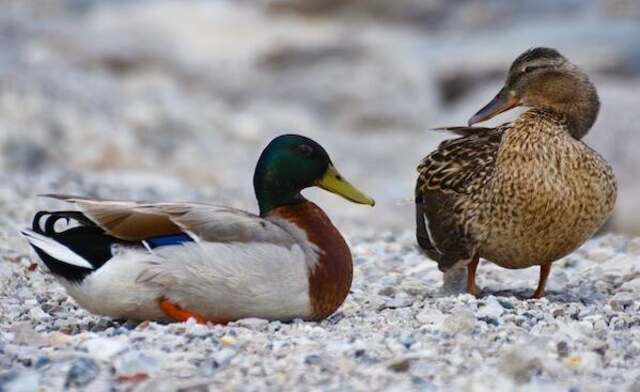
The risks associated with feeding wild ducks worms
While it may seem like feeding wild ducks with some leftover mealworms or earthworms is a kind gesture, it’s important to consider the potential risks involved.
One risk is that the worms themselves may contain harmful parasites or bacteria that can be passed on to both ducks and humans.
Furthermore, feeding ducks an unbalanced diet consisting of only worms can lead to health issues such as malnutrition or digestive problems.
Wild ducks have adapted to their natural environment and have developed specialized diets that include a variety of foods like insects, plants and even small fish.
Overall, while it may be tempting to feed wild ducks with some worms, doing so may actually do more harm than good.
Instead, it’s best to leave them to their natural diet, which ensures they are receiving all the necessary nutrients for a healthy life.
Are there any risks associated with feeding ducks worms?
Ducks are known to enjoy a wide variety of foods, including insects, plants, and even small animals like fish and worms. While worms can be a nutritious addition to a duck’s diet, there are some risks associated with feeding ducks worms.
One of the main concerns with feeding ducks worms is the potential for parasites. Some types of worms can be infected with parasites that could be harmful to both ducks and humans who consume them.
This is especially true if they come from contaminated water sources. Another risk associated with feeding ducks worms is the potential for an unbalanced diet.
This is particularly true for wild ducks who may not have access to a varied diet in their natural habitat. If they are fed too many worms, it could lead to an overconsumption of certain nutrients or deficiencies in others.
The danger of parasites
Parasites are one of the biggest concerns when it comes to feeding ducks worms. Some common parasites found in earthworms include tapeworms and roundworms.
These can cause health problems in both ducks and humans if ingested. To reduce the risk of parasitic infection from feeding ducks worms, it’s important to only feed them fresh, healthy-looking earthworms that have been collected from clean areas.
The importance of balanced nutrition
While it’s okay to occasionally feed ducks worms as part of their overall diet, it’s important not to rely solely on them as a food source. Ducks need a balanced diet that includes a variety of foods in order to stay healthy.
If you’re going to feed wild ducks, make sure you’re offering them other types of food besides just earthworms. Offer some seeds or greens along with the occasional worm as a treat.
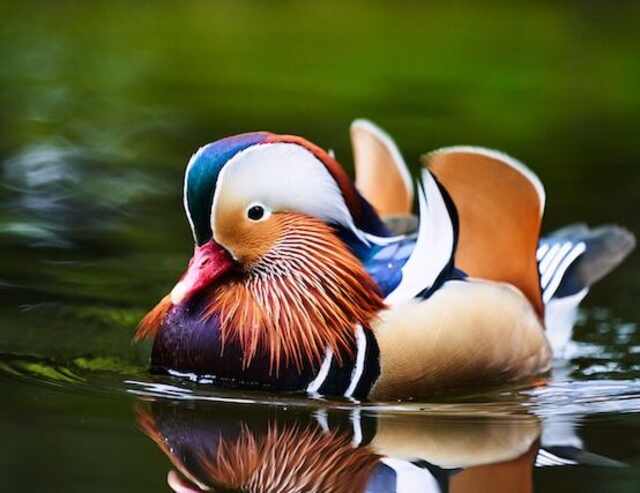
Suggesting caution when feeding wild ducks
While it might be tempting to feed the ducks at your local pond, it’s important to remember that not all ducks have the same access to food. Feeding them a diet that is too heavy in worms or other less-than-ideal foods could lead to health problems down the line.
Feeding wild ducks the right way
If you want to feed wild ducks, it’s important to do so in moderation and with caution. Make sure you’re offering them a variety of foods rather than just one type. Also, be sure to only feed them small amounts at a time so they don’t overeat.
It’s also worth noting that some areas may have laws or regulations around feeding wildlife. Be sure you’re familiar with any applicable rules before offering food to wild animals.
Overall, feeding ducks worms can be a fun and rewarding activity for both humans and ducks alike. But it’s important to do so responsibly and with an eye towards providing a balanced diet for these beloved birds.
Conclusion
Recap on the importance of a balanced diet for all animals, including ducks
Just like humans, animals need a balanced diet to maintain their health and well-being. Ducks are no exception.
While they may enjoy eating worms and other small prey, it’s important that they also have access to a variety of plants and grains in order to get all the nutrients they need.
A healthy duck diet should include plenty of leafy greens, as well as high-protein sources like insects or fish.
It’s also important to note that not all ducks have access to a balanced diet in the wild.
Feeding wild ducks can be fun, but it’s best to provide them with nutritious food like cracked corn or duck feed instead of relying on them eating whatever scraps they can find.
Final thoughts on the role that worms play in a duck’s diet
While worms may not be the most glamorous part of a duck’s diet, they do play an important role in keeping these birds healthy. Worms are high in protein and other nutrients that help support muscle growth and overall health.
Additionally, eating worms provides mental stimulation for ducks. These birds are intelligent and curious by nature, so hunting for food can help keep them mentally engaged and happy.
Overall, while we may not find worms appetizing ourselves, we should appreciate their role in our ecosystem – including as part of a duck’s diet!
By providing our feathered friends with a varied and nutritious meal plan that includes worms (if desired), we’re helping ensure their continued health and happiness for years to come.
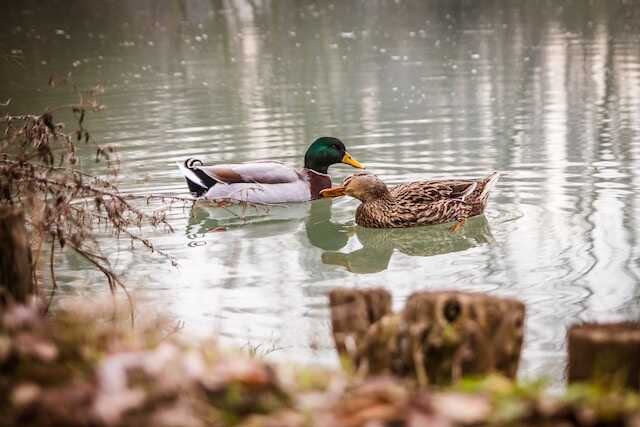
FAQs: Do Ducks Eat Worms?
Do Ducks Eat Worms?
Yes, ducks eat worms as part of their natural diet. Insects and other invertebrates provide a good source of protein for ducks.
How many worms do ducks eat?
The number of worms a duck eats depends on factors such as its size, age, and activity level. However, ducks can consume a significant amount of worms as part of their diet.
Do ducks eat earthworms?
Yes, ducks will eat earthworms as they are a common and easily accessible type of worm.
Are worms good for ducks?
Yes, worms are a good source of protein and other nutrients for ducks. Eating worms is part of their natural diet.
Can ducks eat mealworms?
Yes, ducks can eat mealworms as they are a good source of protein. However, it’s important to feed them in moderation as mealworms are high in fat.
What other insects do ducks eat?
Ducks eat a variety of insects, including beetles, ants, flies, and grasshoppers. Insects provide important nutrients and protein for ducks.
How do ducks find worms?
Ducks use their keen sense of smell and sight to locate worms in the soil. They also use their beaks to dig in the ground to find worms.
Do ducks eat garden worms?
Yes, ducks will eat garden worms if they are available. However, it’s important to ensure that the worms have not been exposed to pesticides or other harmful chemicals.
Are worms the only food source for ducks?
No, worms are not the only food source for ducks. Ducks also eat aquatic plants, grasses, and seeds, as well as small fish and crustaceans.
Can ducks eat dead worms?
Yes, ducks will eat dead worms if they come across them. However, it’s important to ensure that the worms are not contaminated or spoiled.

